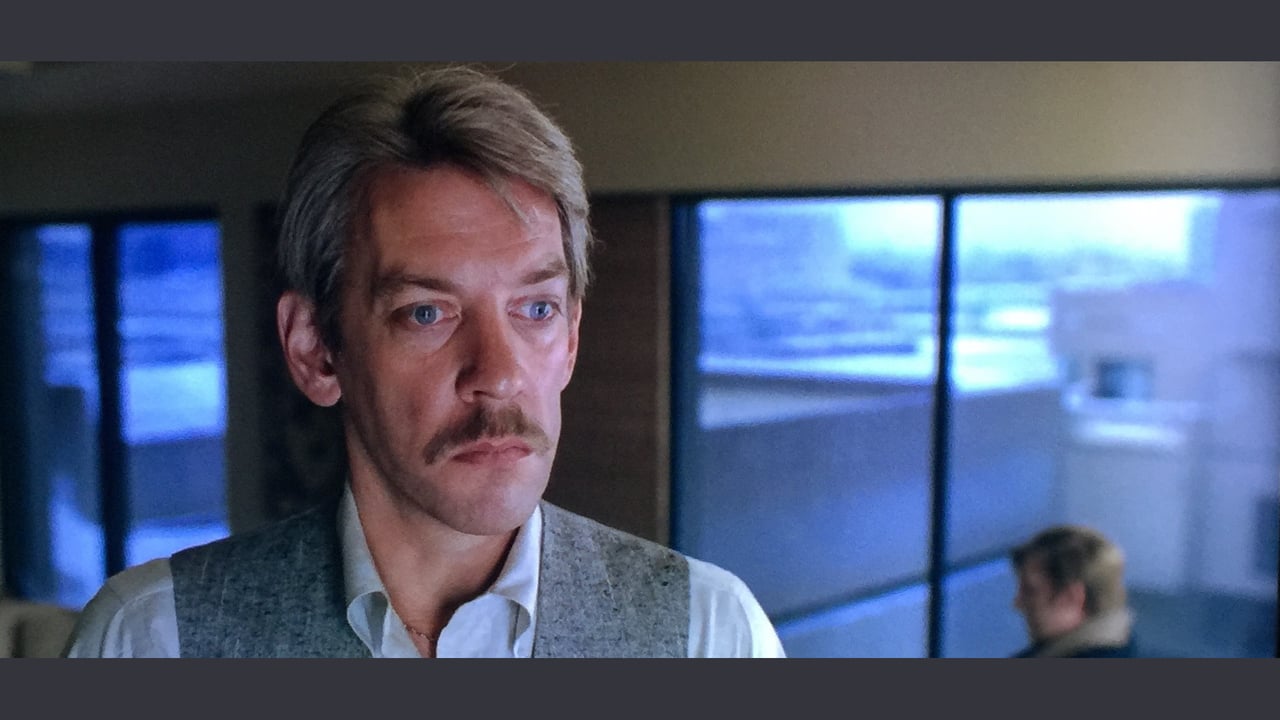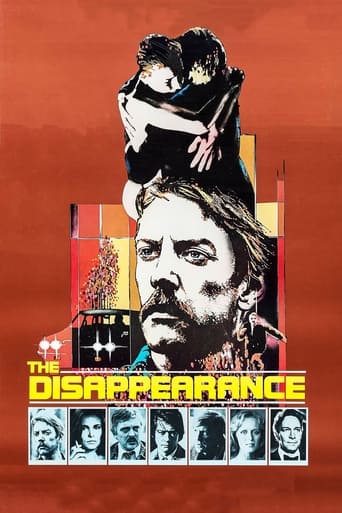

***SPOILERS***Canadian thriller with a shocking scene in it where a box of Kellogs Cornflakes, my favorite serial, being shot to pieces as it's used by the person bring shot at as a human shield. The film has to do with this top Canadian hit-man Jay Mallory, Donald Sutherland, who's two timing wife's Celandine, Francine Racette, disappears on him and instead of being happy & relived, she's wasn't worth the trouble, he goes all out in both Canada & the UK to find her and bring her back to him.By the time the movie ends we have no idea on which side Celandine is on but by then her husband, who was by then completely out of the picture, couldn't care less.After doing a number of "Shy's"-hit-jobs in Canadian mobster talk- Mallory is given a job or "Shy" to do in England by his boss Deverell, played by Christopher-known to his friends as "Chris the Plummer"- Plummer, that sounds a bit fishy to him.As Mallory soon suspects it's Deverell who's setting him up and is using his lost wife Celandine to do it. As we soon see Celandine's psycho act of her losing her mind is to throw off all suspicions on what she's really up to which by the time the movie is over she doesn't know herself.***SPOILERS***The deadly serious Jay Mallory starts to lose his touch as a 1st class hit-man and lets his guard down for the first and last time by him thinking that he can quit the mob and live to tell about it. The ending tells it all shot in the Canadian dead of winter that he as well as we in the audience not to mention the Kellogs Corn Flake serial box never saw it coming. It was foolish for Mallory to feel that his life as a hit-man was far behind him not realizing that those that he hit have friends and relatives who won't forget what he did as well as the mob whom he by leaving it he tried to double-cross!
... View MoreGood start, some suspense, some tense music, filmed from above, and you say, I will see a great movie. But, in spite of several big names like David Hemmings (also producer of the film), David Warner, John Hurt, Christopher Plummer, all real actors, The Disappearance do not offer us anything. I never considered Mister Donald Sutherland a great actor except... because of his stature. Only now I understand why Fellini chose him precisely in the role of Casanova, to make a total caricature of Casanova (Fellini is famous anyway for the fact that he preferred non-professionals to real actors, he preferred mugs, expressive faces with grimaces...) In any case, you do not cast Donald Sutherland as a killer, it's ridiculous. You cast Lee Marvin or Jack Palance for that, they are more than Actors. I am not convinced of anything, all that Mr. Sutherland does in the whole movie is to stand frowned, teeth clenched, angry that her wife disappeared. And, if the start was so promising, the end it's absolutely disappointing. We discover that it was his wife the one who hired the killer and, in the last scene, the killer himself is shot. Probably by Santa Claus, because it's winter time...
... View MoreThe Disappearance, to me, is a Hitchcock wannabe that simply isn't. It's a slowly paced, talky thriller that just doesn't cut it. Donald Sutherland and the cast are great, but there are so many British actors in the cast that the term "Canadian-Made" sounds like a cheat. If this is a Canadian movie, wouldn't it have been better if they had put all Canadian actors in the cast? Also, if the movie takes place in Montreal (a mostly French-speaking city), wouldn't it have made more sense to have Sutherland's character do his foreign assignment in somewhere like Paris, France, instead of in England? After all, this is not a British movie, it's Canadian.It surprised me that Sutherland and Francine Racette were married and had 3 children.I recommend this only for fans of deep psychological thrillers. As for me, I think I will be putting a "Previously Viewed" label on this one and dropping it in the drop-off slot at my local video store.Rating: **
... View MoreThis film does a fine job of putting the viewer into the position of the main protagonist, Jay Mallory. It isn't until the climax of the film when Mallory and Christopher Plummer's character, Deverell, meet that the viewer can understand the disjointed, roller-coaster ride that Mallory has been on.The haunting piano music beautifully reflects the tension of the film. The support cast is made up of outstanding English and European actors who give the feel of the film the pace so often brought to the screen of excellent non-US films.
... View More